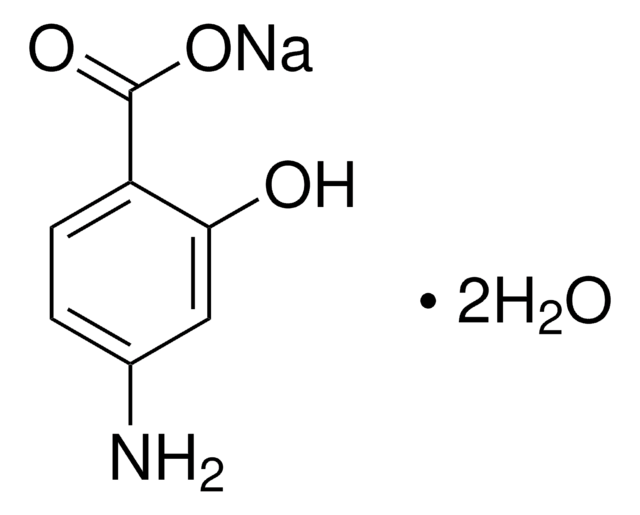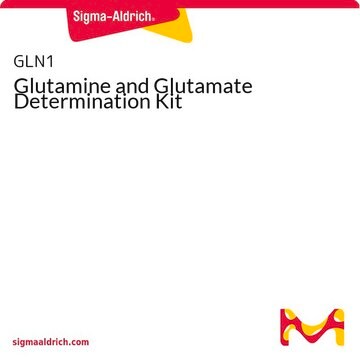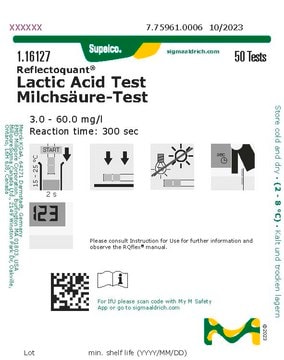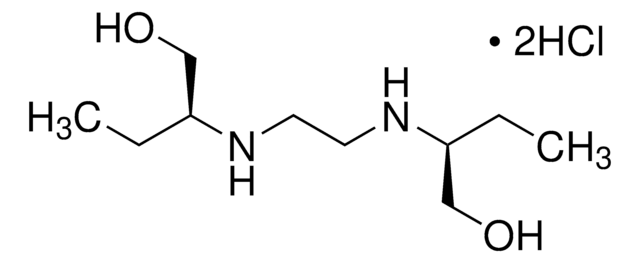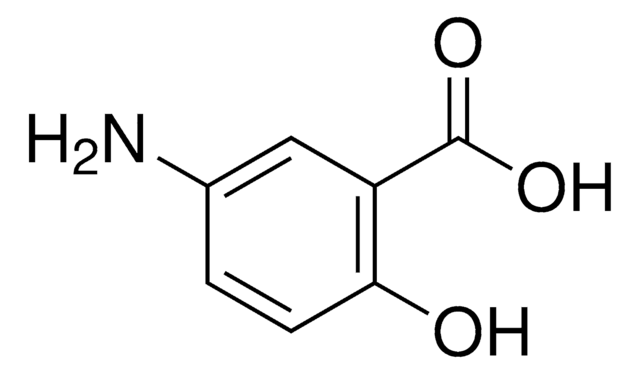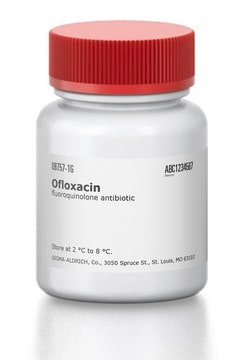09415
Sodium 4-aminosalicylate dihydrate
≥97.0% (T)
Synonym(s):
4-Amino-2-hydroxybenzoic acid sodium salt, 4-Amino-salicylic acid sodium salt
About This Item
Recommended Products
Quality Level
Assay
≥97.0% (T)
form
powder
reaction suitability
reaction type: solution phase peptide synthesis
technique(s)
ligand binding assay: suitable
color
white to faintly beige
application(s)
peptide synthesis
SMILES string
O.O.[Na+].Nc1ccc(c(O)c1)C([O-])=O
InChI
1S/C7H7NO3.Na.2H2O/c8-4-1-2-5(7(10)11)6(9)3-4;;;/h1-3,9H,8H2,(H,10,11);;2*1H2/q;+1;;/p-1
InChI key
GMUQJDAYXZXBOT-UHFFFAOYSA-M
Looking for similar products? Visit Product Comparison Guide
Signal Word
Warning
Hazard Statements
Precautionary Statements
Hazard Classifications
Eye Irrit. 2 - Skin Irrit. 2 - STOT SE 3
Target Organs
Respiratory system
Storage Class Code
11 - Combustible Solids
WGK
WGK 3
Flash Point(F)
Not applicable
Flash Point(C)
Not applicable
Personal Protective Equipment
Choose from one of the most recent versions:
Certificates of Analysis (COA)
Don't see the Right Version?
If you require a particular version, you can look up a specific certificate by the Lot or Batch number.
Already Own This Product?
Find documentation for the products that you have recently purchased in the Document Library.
Customers Also Viewed
Our team of scientists has experience in all areas of research including Life Science, Material Science, Chemical Synthesis, Chromatography, Analytical and many others.
Contact Technical Service
